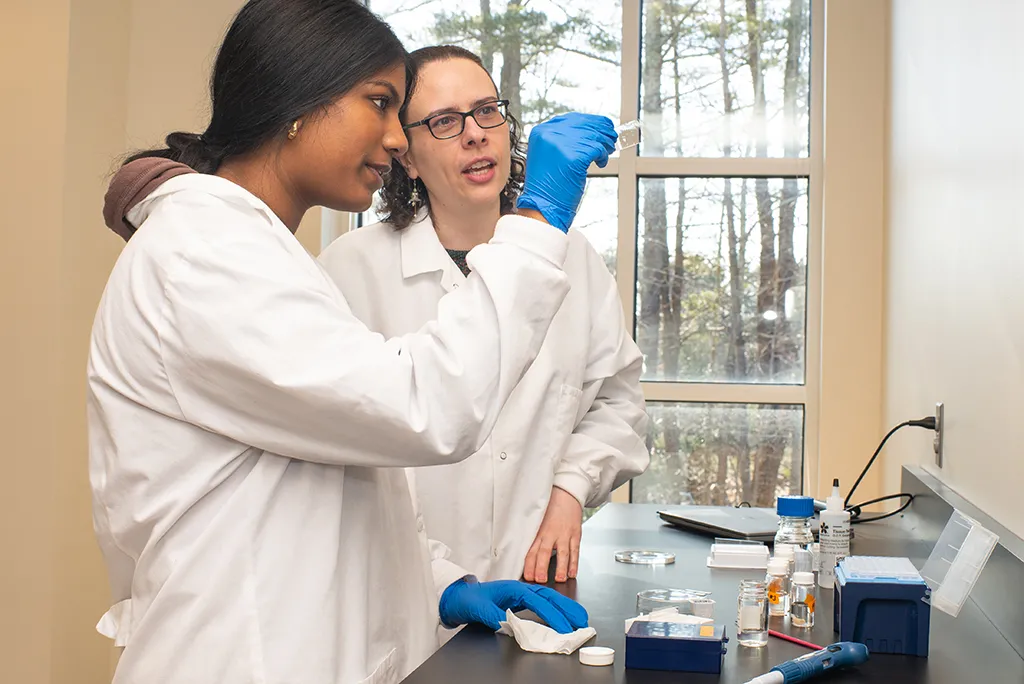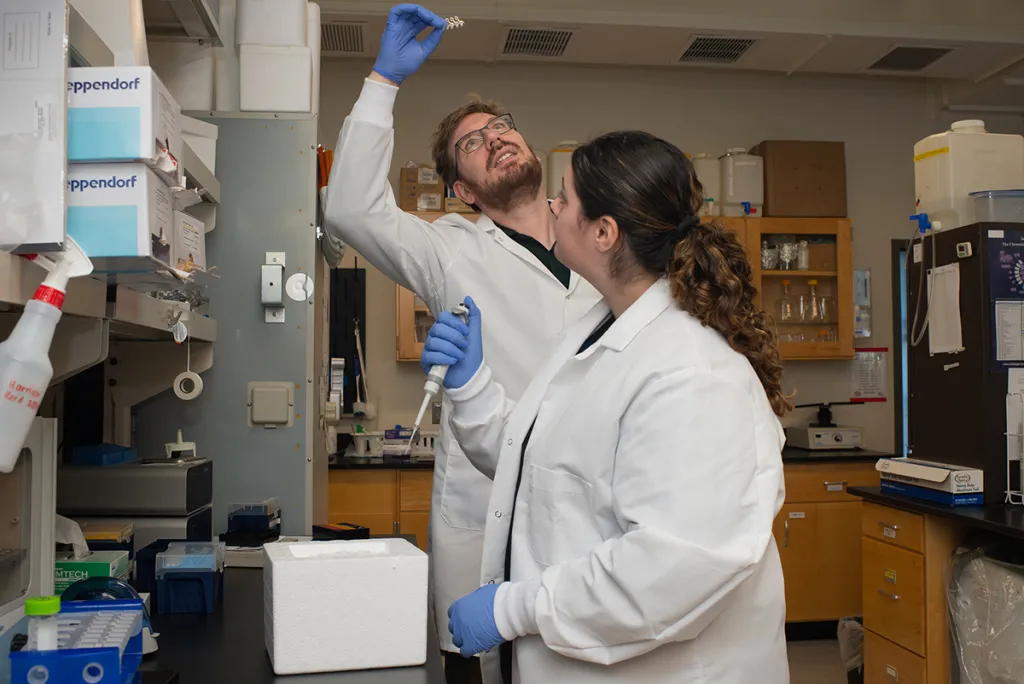Neuroscience Investigators at UNE
A primary aim of the Center for Pain Research is to increase the number of neuroscience investigators at UNE and to build a research community that will sustain a vibrant and competitive research center. As part of this aim, the Center funds the research efforts of talented and innovative investigators leading projects related to pain and sensory function.
The goal of this funding is to provide these investigators with the support necessary to develop their novel research projects to the point where each can be independently funded with its own separate federal grant. To date, four investigators have received independent funding.


Current Center for Pain Research Projects
Project Title
Painful neonatal trauma alters subsequent fear and sensory function via changes in amygdalar
CRF function
Project Leader

Project Description
Michael Burman, Ph.D., tests the hypothesis that neonatal trauma alters the development of a subset of neurons in the amygdala, which can put an individual at increased risk later in life for a variety of conditions such as anxiety disorders, post-traumatic stress disorder, depression, and chronic pain.
Project Title
Novel expression of MHC class II on DRG neurons can directly activate CD4+ T cells contributing to the resolution of neuropathic pain.
Project Leader

Project Description
Diana Goode, Ph.D., tests the hypothesis, that sensory neurons expressing MHC II can activate CD4+ T cells to stimulate the paracrine release of anti-inflammatory cytokines.
Previous Project Leaders
Project Title: Interaction between calcitonin-gene-related-peptide and CD40 on CNS glial cells in neuropathic pain
Ling Cao, M.D., Ph.D., studies the interaction between the immune system and the nervous system, exploring the impact of immune cells on pain stemming from nerve injury.
Received R01 Grant July 2016 and Graduated from the COBRE
Project Title: Genes involved in antinociception in Drosophila Melanogaster
Geoffrey Ganter, Ph.D., uses genome-wide screens in the fruit fly, Drosophila Melanogaster, to identify novel genes involved in perception of noxious stimuli.
Received a R15 Grant September 2015
Project Title: The role of spinal disinhibition in cancer-induced bone pain
Tamara King, Ph.D., will examine neural mechanisms underlying cancer bone pain, focusing on the role of altered signaling by inhibitory interneurons within the spinal cord in mediating cancer bone pain. Understanding the role of disinhibition in cancer-induced bone pain will reveal potential novel targets for the development of alternative non-opioid therapies for breakthrough pain.
Promoted to Behavior Core Director June 2021
Project Title: Function of the transcription factor Sox11 in regulating the plasticity of nociceptive neurons after nerve injury
Lei Lei, Ph.D., studies the development of nociceptive neurons, with a particular focus on the transcription factors regulating the plasticity of these neurons following peripheral nerve injury.
Co-collaborator on R01 Grant and Graduated from the COBRE in July 2016
Project Title: Genetic control of nociceptor anatomical plasticity in the adult peripheral nervous system
Benjamin Harrison, Ph.D., studies the mechanisms of neuron growth. His COBRE project is geared to understand how RNA-binding proteins (RBPs) regulate the growth of pain receptors.
Received an R01 Grant in April 2022
Project Title: Oxytocin signaling in nucleus accumbens GABAergic interneurons in chronic pain
Christoph Straub, Ph.D., will characterize oxytocin signaling in nucleus accumbens GABAergic interneurons ex vitro. The study will also examine the activity of NAc GABAergic interneurons in chronic pain in behaving animals.
Contact
Center for Pain Research Administration


